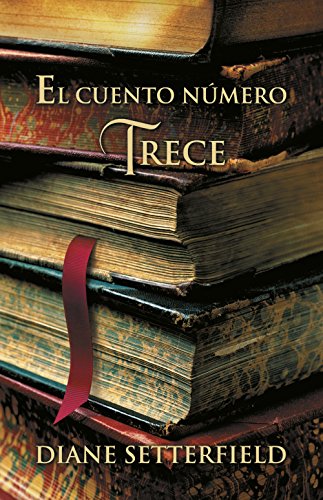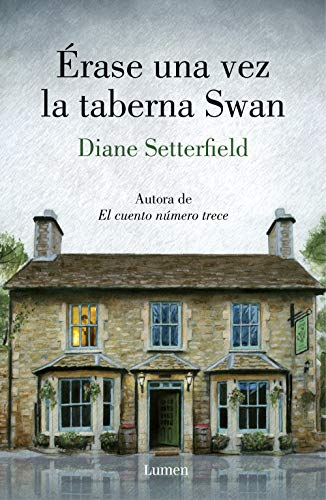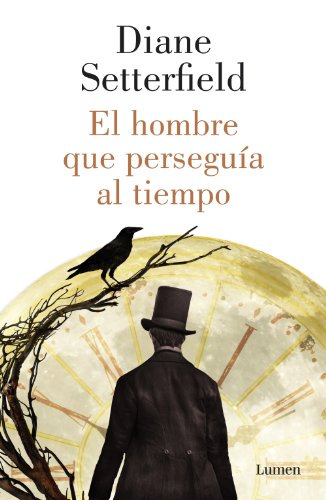Sometimes the bestseller phenomenon ends up doing justice to some great authors who epitomize the innate desire to tell stories with a parallel training in the literary universe that captivates them the most. It is the case of Diane setterfield the coincidence between capacity and popular recognition arises from that search for the intermediate point between narrative scholarship and the most popular taste for an entertainment proposal.
That is, what the novel must essentially be and, in whose development it is also possible to invite reflection, to recreate itself in the brightest images from the form or to serve as a parallel chronicle for a human evolution in need of fiction, criticism and imagination for a greater understanding of what surrounds us.
Of course, all of the above is not an idea expressed by Diane, but it can certainly be culled this way when approaching a reading as successful as The story number 13, a novel that maintains an insurmountable tension around the human soul itself, capable of harboring the greatest secrets for that great book that we could all write in our last days.
To achieve this manifest balance between the author's overflowing cultural capacity and the necessary undertaking of a more popular aspect with which to transmit her writing to any reader, Diane began by dedicating several years to her first novel. And once the synthesis is achieved, the perfect alchemy, what Diane can offer us surpasses all perspectives.
Diane Setterfield's Top 3 Recommended Books
Tale number thirteen
Five years with all its days and hours. That was the period that Diane dedicated to writing this novel to satisfy all types of readers.
The very image of the protagonist, Vida Winter, an ancient writer whose past is in the process of retreating into herself, with that one carried away by remote guilt, longing and secrets.
In the process of necessary purging of existence, Mrs. Winter is accompanied by Margaret, her young reflection, with her same passion for literature and with a cleansing of that burden of time lived on which Life can atone for all those sins of life. existence that opens before us like an exciting journey to the soul.
Because we all sin from the same whims, from the same small or great betrayals. Because we all suffer from similar failures and long for the same lost paradises.
In the case of Vida, everything is accompanied by the thread of a mystery as the perfect hook for a reader surprised by his own introspective reflection without being able to stop reading towards the discovery of the essential truth of Vida. A metaphor for existence clothed with a particular suspense.
An essential book because we are all novelists like Mrs. Winter, with our truths, our half truths and our most absolute fictions ...
Once upon a time the Swan Tavern
That is what it is about, to point to the lightness of the story to end up presenting a story between the rugged and the magical. The old Swan tavern, among the mists of the Thames, houses within its walls the most fascinating stories that have passed for centuries, like a last bastion that resists the passage of time to remain as tangible testimony of everything known in that popular culture with the that the intrahistory of any small or large place is written.
But the night of history is not just any night for the centennial space. The appearance of the bloody man with the girl in his arms points to a crime novel, and yet the passage of the narrative ends up addressing the fantastic, the mythological and even the mystical.
Because of all this is composed that popular imaginary full of magic to explain everything, from the most joyful and festive to the most sinister and gloomy. Without a clear reference time but with nineteenth-century taste, we enter into the assumption that the dead girl transported by the lost traveler there may be a recently lost girl or another who disappeared a long time ago.
The girl may or may not be dead, everything will be discovered as we move forward in a kaleidoscopic world in which the sum of the characters end up composing a realism as magical as it is overwhelming in which the superstition, traditions and the ability of a sublime character like Bess to read the soul they end up tuning into a mythical ending.
The man who chased time
Can death mark the anecdotal to make it transcendental? Sometimes two concepts as distant as childhood and death come together to compose an alienating scenario whose understanding from the notion of the child can be oriented from very different angles, from the simply casual to the strictly predestined.
In the case of William Bellman and his ability to kill a bird with a slingshot when he was only ten years old, it seems to turn against him over the years. Death is a presence centered on William as the avenger of that "simple" bird.
And when William takes stock of his life in its last heartbeats, with that strange cadence of time that no longer belongs to you in old age, we accompany the mental evolution that associates the fateful shot of the slingshot with the right bias of the scythe of death. , precipitated on his surroundings with an avenging fierceness that acts in every moment of his life in which prosperity seems to want to make its way thanks to the unshakable will of William. A kind of fable that Tim Burton could well take to the cinema.



